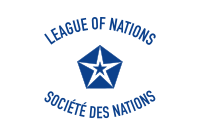
Photo from wikipedia
Abstract This article stresses the role of colonial governments, not only national sovereign states, in Asia (and to a lesser extent, Africa) at the League of Nations in shaping global… Click to show full abstract
Abstract This article stresses the role of colonial governments, not only national sovereign states, in Asia (and to a lesser extent, Africa) at the League of Nations in shaping global governing norms. It emphasizes the significance of lateral and horizontal cooperative actions across colonial governments, especially intercolonial networks of public health experts. It argues that the League of Nations Health Organization (LNHO) accepted these intercolonial practices in Asia in the 1920s, and that this led it to recognize colonial governments as formal and legitimate units in its intergovernmental conferences held in the mid 1930s. In the process, the LNHO provided an intercolonial channel for ‘national’ experts from colonial Asia to participate directly in regional and global governing norm-making processes. In turn, this highlights both the ambiguous nature of national experts and the intercolonial legacy in international health programmes in developing countries in the post-war period.
Journal Title: Journal of Global History
Year Published: 2017
Link to full text (if available)
Share on Social Media: Sign Up to like & get
recommendations!